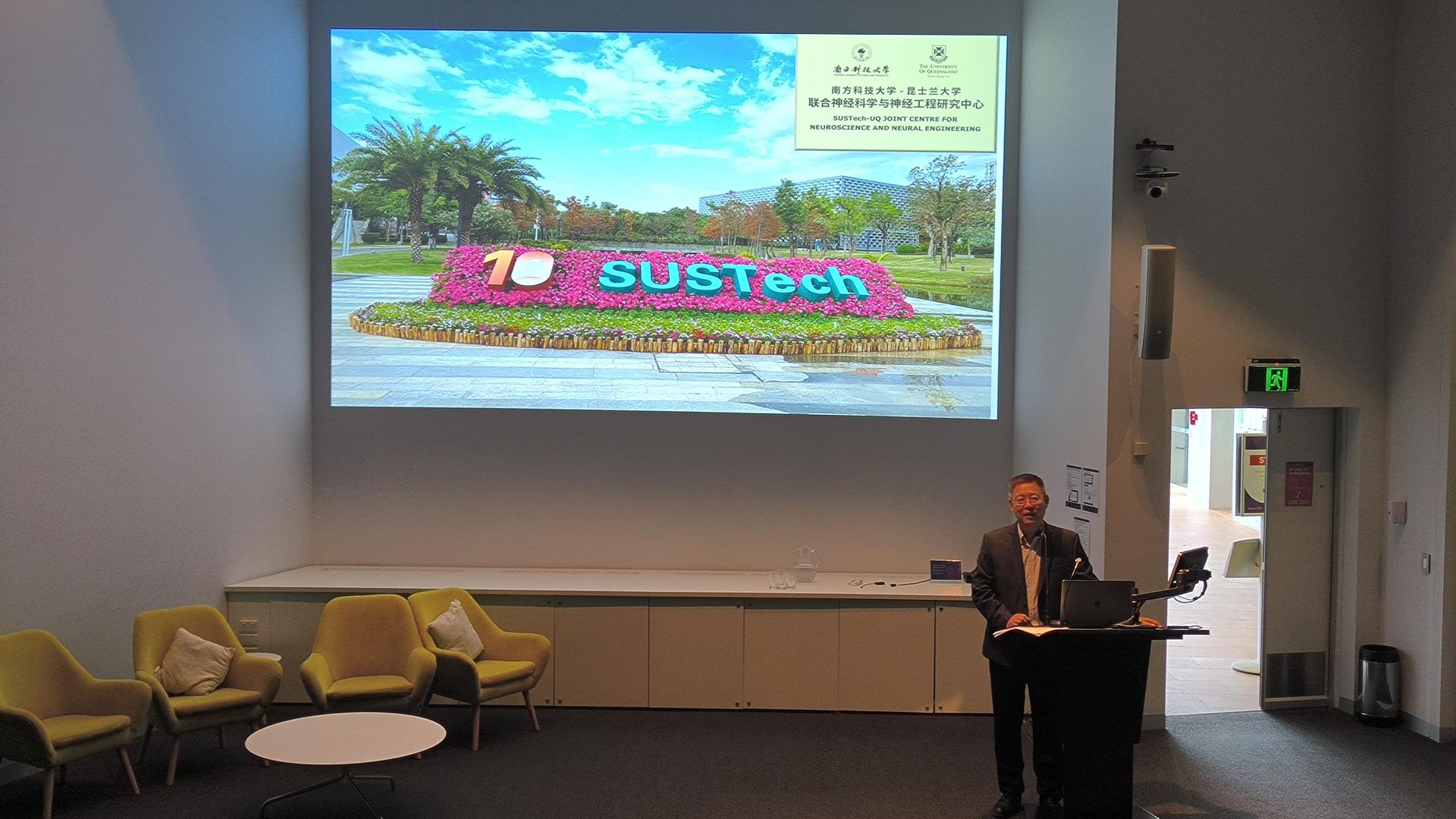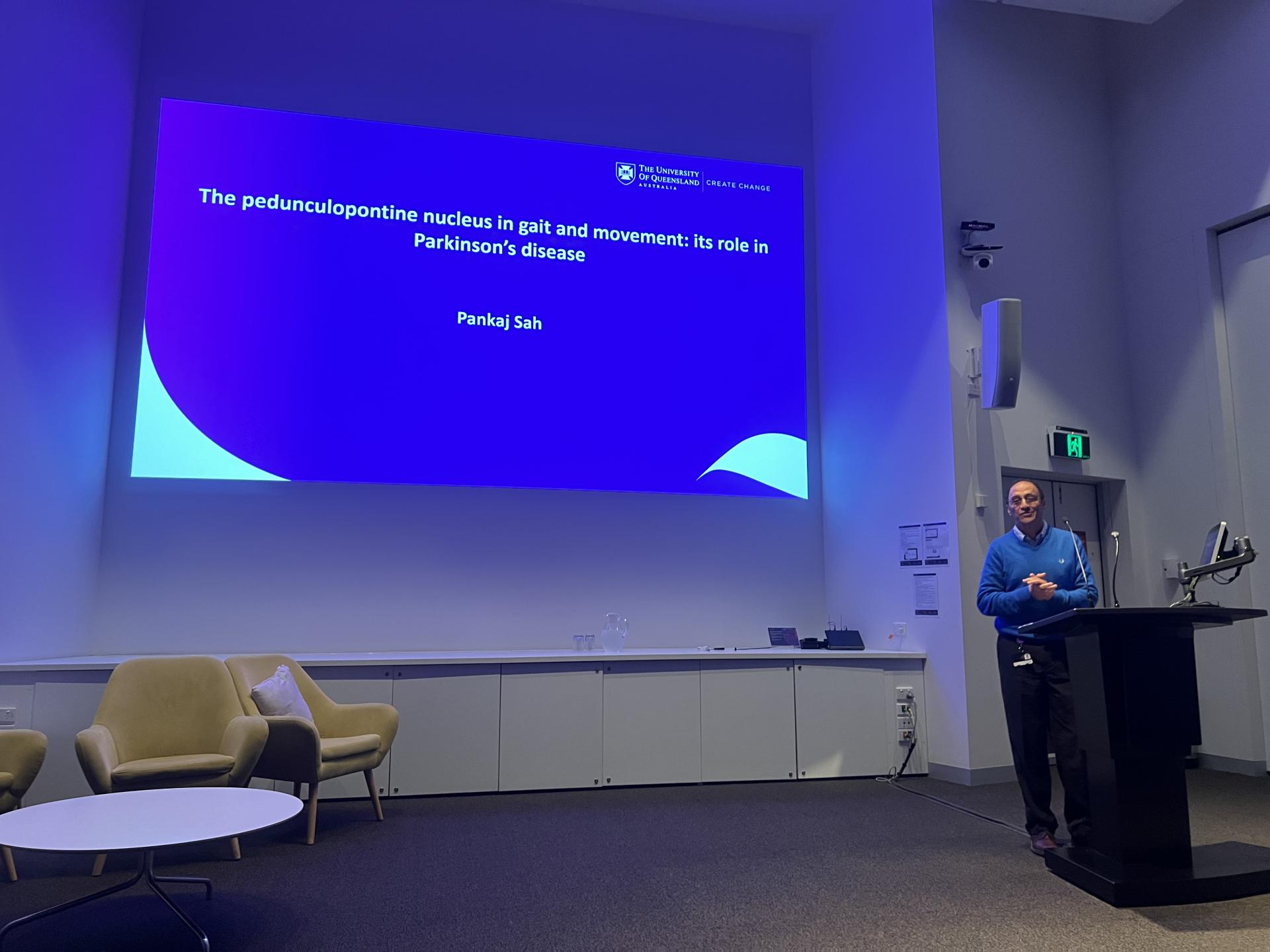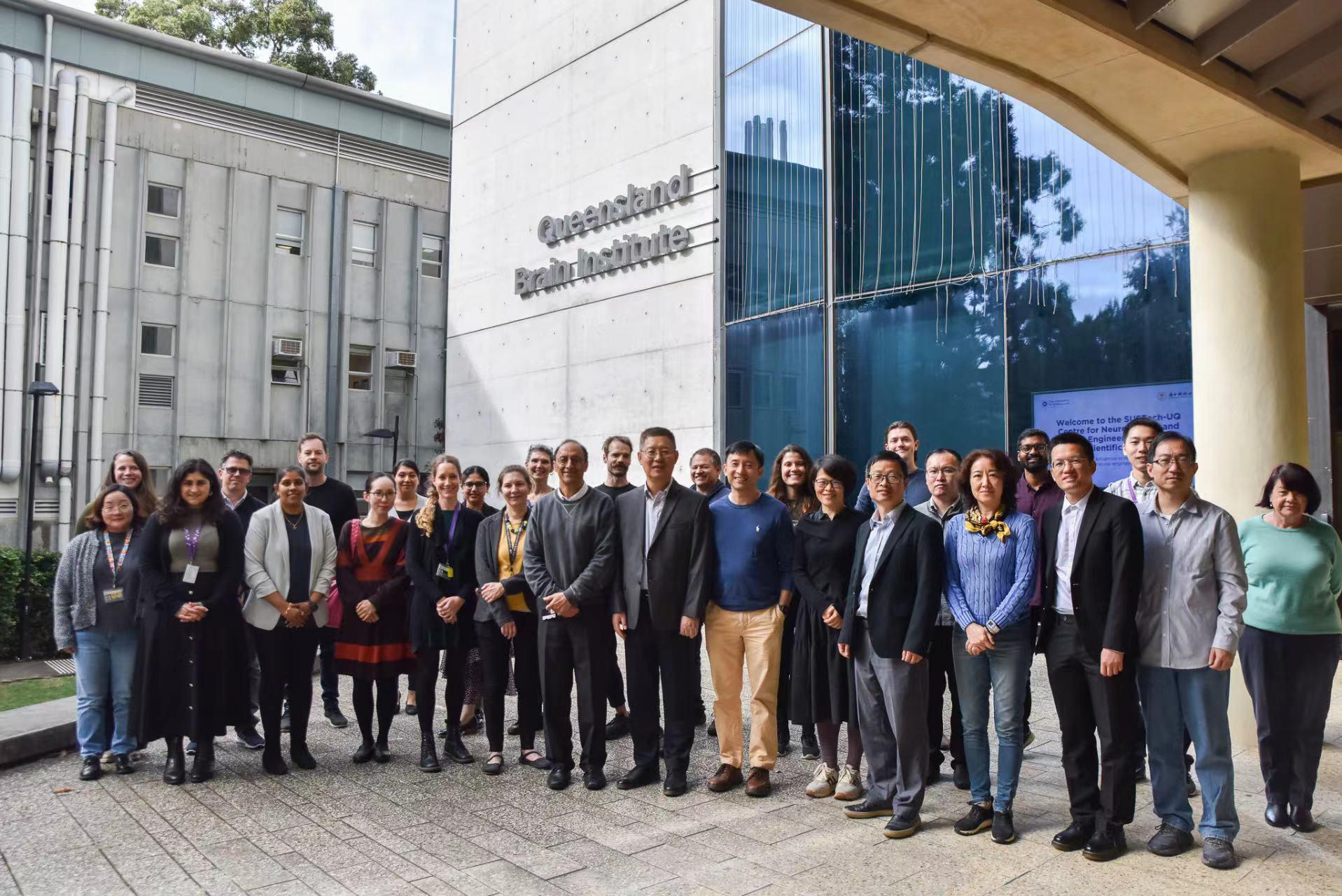From July 8 to 9, the Southern University of Science and Technology (SUSTech)-University of Queensland (UQ) Joint Centre for Neuroscience and Neural Engineering (CNNE) held its second academic symposium at the Queensland Brain Institute (QBI) in Australia.
Participants included faculty members from SUSTech’s Departments of Neuroscience and Systems Biology at the School of Life Sciences, the Department of Pharmacology at the School of Medicine, and the Department of Biomedical Engineering at the College of Engineering, as well as scholars from UQ.


Shengtao HOU, Deputy Head of the Department of Biology at SUSTech and Director of CNNE, provided an overview of the collaborative history and achievements between both parties, highlighting the work of joint doctoral students published in internationally renowned journals such as Cell Metabolism, Nature Communications, and the Journal of Cerebral Blood Flow & Metabolism.
Pankaj Sah, Director of QBI, acknowledged CNNE’s progress in brain science and expressed hope for continued collaboration between the two sides to advance technology transfer to clinical applications and enhance understanding and treatment of neurological diseases.
The symposium featured 25 scholars from both universities presenting reports on topics including synaptic ultrastructure analysis, system neurobiology, spatiotemporal omics analysis, strokes, deep brain stimulation for Parkinson’s disease, peripheral sensory neural circuits, and new mechanisms of Alzheimer’s disease.
Additionally, a student meeting was organized to introduce postdoctoral and principal investigator recruitment policies at SUSTech, and participants toured the super-resolution microscopy facilities.

Founded in January 2020, CNNE focuses on exploring interdisciplinary approaches to the undergraduate education system, conducting cutting-edge research in neuroscience and neural engineering, and developing innovative clinical treatments while nurturing high-end talent for Shenzhen. The collaboration has yielded significant results in the analysis of stroke injury and protection mechanisms, as well as clinical translational treatment technologies for Parkinson’s disease.
The CNNE has trained over 20 master’s and doctoral students and eight clinical neurologists to conduct preclinical and basic research, published nearly 100 high-level research papers, and achieved notable cooperation results in various areas.
Proofread ByYingying XIA
Photo BySchool of Life Sciences